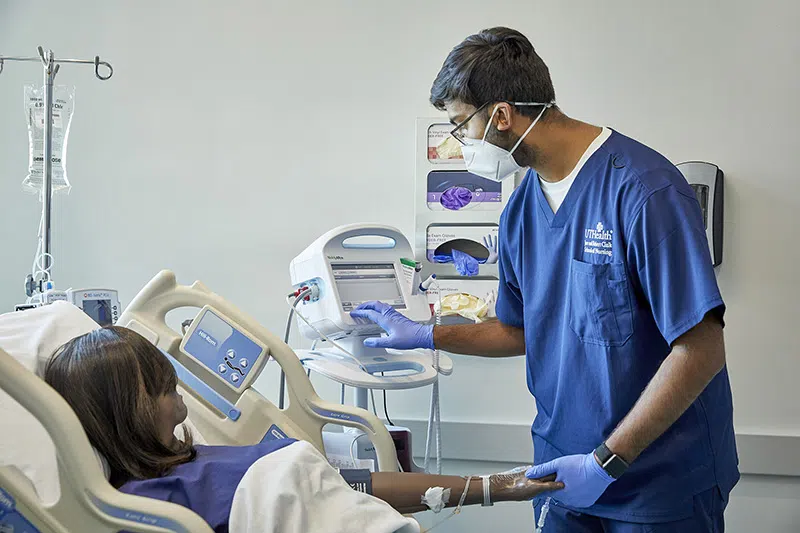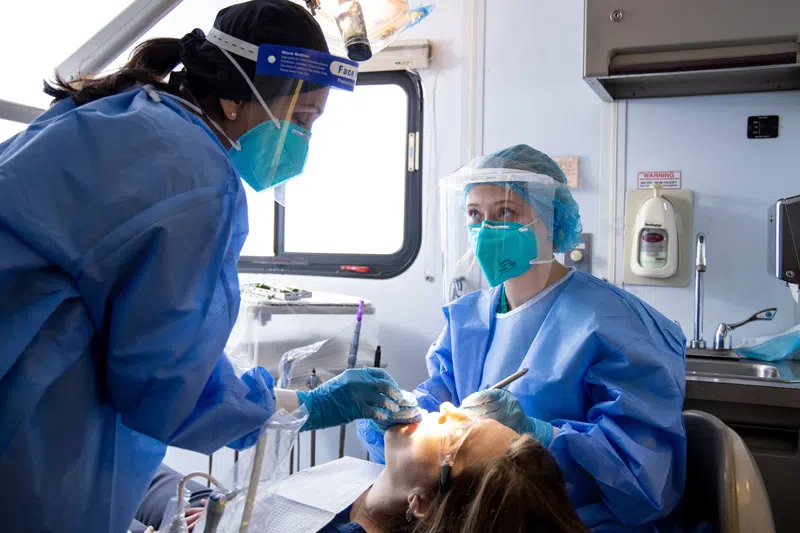POLICY
Research that is funded or supported by the Department of Defense (DoD) or one of its components, must comply with the DoD Regulations for “Protection of Human Subjects” at 32 CFR 219 and DoD Directive 3216.2.
UTHealth has signed the Department of Defense addendum to its Federal-Wide Assurance (FWA) assuring that it will apply the DoD regulations to human subjects research involving the DoD.
Key Terms
Research Involving a Human Being as an Experimental Subject is defined as an activity, for research purposes, where there is an intervention or interaction with a human being for the primary purpose of obtaining data regarding the effect of the intervention or interaction [32 CFR 219.102(f), reference (c)]. Examples include, but are not limited to, a physical procedure, a drug, a manipulation of the subject or subject’s environment, the withholding of an intervention that would have been undertaken if not for the research purpose.
DoD Components refers collectively to the organizational entities within the DoD that are subject to the human subjects protections laid out in Department of Defense Directive.
Minimal Risk: Those risks ordinarily encountered in daily life or during the performance of routine physical or physiological examinations or tests. Minimal risk should not be evaluated against the inherent risks encountered in participants’ work environment (e.g., soldier in a combat zone) or medical condition.
PROCEDURE
Educational Requirements: UTHealth requires all key study personnel to pass the online CITI test every three years. There may be specific DoD educational requirements or certification required. The Principal Investigator is responsible for ensuring that the research staff have completed all the educational requirements of the specific DoD component policy. Researchers may contact the Program Officer at DoD or DoD Component for more information on the educational requirement specific for the DoD component. IRB staff and members refer to this policy to ensure that the specific requirements contained in Department of Defense regulations and directives are met.
Scientific Review: Initial proposals and subsequent substantive amendments to approved research must undergo scientific review. This requirement may be met by scientific review by the departmental committee or scientific review conducted by appropriately qualified IRB members as part of the IRB review process. The IRB may rely on outside experts to provide an evaluation of scientific merit
Research Involving Greater than Minimal Risk: When research involves greater than minimal risk, the IRB will require the appointment of a research monitor. The IRB may require a monitor for a portion of the research or studies involving no more than minimal risk, if appropriate. The Principal Investigator must appoint an independent research monitor by name.
Research Monitor: For research determined to be greater than minimal risk, the IRB will approve, by name, an independent research monitor with expertise consonant with the nature of risk(s) identified within the research protocol. The IRB must approve a written summary of the monitors’ duties, authorities, and responsibilities. The research monitor may be identified from within or outside the PI’s institution. The research monitor has the authority to stop a research study, remove individuals from a study and take any steps to protect the safety and well-being of participants until the IRB can assess. Research monitor functions and duties are determined on the basis of specific risks or concerns about the research, such as:
- Perform oversight functions such as:
- observing recruitment and enrollment procedures and the consent process for individuals, groups or units,
- overseeing study interventions and interactions,
- reviewing monitoring plans and unanticipated problem reports,
- overseeing data matching, data collection, and analysis.
- Discuss the research protocol with researchers, interview human participants, and consult with others outside the study.
- Report findings and observations to the IRB or a designated official.
There may be more than one research monitor (e.g., if different skills or experiences are necessary). The monitor may be an ombudsman or a member of the data safety monitoring board. At a minimum, the research monitor shall have the responsibility to promptly report their observations and findings to the IRB or other designated official and the Human Research Protection Office (HRPO) at U.S. Army Medical Research and Materiel Command. A biographical sketch or CV and human subject’s protection training for the research monitor must be provided. There should be no apparent conflict of interest and the monitor cannot be under the supervision of the PI or other investigators or research staff.
Consent Document: In addition to the basic and additional consent disclosures, consent documents must include:
- A statement that the DoD or a DoD organization is funding the study.
- A statement that DoD representatives are authorized to review research records.
- Provisions for research related injury as required by the DoD component funding the study.
Waiver of Consent: If the research participant meets the definition of “experimental subject,” policies and procedure prohibit a waiver of the consent process unless a waiver is obtained from the Secretary of Defense. If the research participant does not meet the definition of “experimental subject,” policies and procedures allow the IRB or EC to waive the consent process. Waiver of consent is prohibited for classified research. If the research participant does not meet the definition of “experimental subject”, the IRB is allowed to waive the consent process as outlined in the policy on Informed Consent.
International Research: Researchers have additional responsibilities while conducting research that involves subjects in international setting:
- Researcher must obtain permission to conduct research in that country by certification or local ethics review.
- Researcher must follow all local laws, regulations, customs, and practices.
Multi-site Research: When conducting multi-site research, a formal agreement between organizations is required to specify the roles and responsibilities of each party.
Research Involving Department of Defense Personnel: Surveys performed on Department of Defense personnel must be submitted, reviewed, and approved by the Department of Defense after the research protocol is reviewed and approved by the IRB.
Research Involving US Military Personnel: When research involves U.S. military personnel the proposed research must have additional protections for military research participants to minimize undue influence:
- Officers are not permitted to influence the decision of their subordinates.
- Officers and senior non-commissioned officers may not be present at the time of recruitment.
- Officers and senior non-commissioned officers have a separate opportunity to participate.
- When recruitment involves a percentage of a unit, an independent ombudsman is present.
- When research involves U.S. military personnel, policies and procedures require limitations on dual compensation:
- Participants are not permitted to receive pay or compensation for research during duty hours however, participants may be compensated for research if the participant is involved in the research when not on duty.
- Federal employees while on duty and non federal persons may be compensated for blood draws for research up to $50 for each blood draw.
- Non federal persons may be compensated for research participation other than blood draws in a reasonable amount as approved by the IRB according to local prevailing rates and the nature of the research study.
Research Involving Vulnerable Populations: Research involving pregnant women, children and prisoners are subject to the DHHS Subparts B, C, and D.
- Research Involving Pregnant Women: For purposes of applying Subpart B, the phrase “biomedical knowledge” shall be replaced with “generalizable knowledge.” The applicability of Subpart B is limited to research involving pregnant women as participants in research that is more than minimal risk and included interventions or invasive procedures to the woman or the fetus or involving fetuses or neonates as participants.
- Fetal research must comply with the US Code Title 42, Chapter 6A, Subchapter III, Part H, 289g.
- Research involving prisoners: Research involving prisoners must be reviewed by the convened IRB.
- When the IRB reviews research involving prisoners, at least one prisoner representative must be present for quorum.
- In addition to allowable categories of research on prisoners in Subpart C, epidemiological research is also allowable when:
- The research describes the prevalence or incidence of a disease by identifying all cases or studies potential risk factor association for a disease.
- The research presents no more than minimal risk.
- The research presents no more than an inconvenience to the participant.
- If a participant becomes a prisoner, if the researcher asserts to the IRB that it is in the best interest of the prisoner-participant to continue to participate in the research while a prisoner, the IRB chair may determine that the prisoner-participant may continue to participate until the convened IRB can review this request to approve a change in the research protocol and until the organizational official and DoD Component office review the IRB’s approval to change the research protocol. Otherwise, the IRB chair shall require that all research interactions and interventions with the prisoner-participant (including obtaining identifiable private information) cease until the convened IRB can review this request to approve a change in the research protocol. The convened IRB, upon receipt of notification that a previously enrolled human participant has become a prisoner, shall promptly (no longer than 30 days) re-review the research protocol to ensure that the rights and wellbeing of the human participant, now a prisoner, are not in jeopardy. The IRB should consult with a subject matter expert having the expertise of a prisoner representative if the IRB reviewing the research protocol does not have a prisoner representative. If the prisoner-participant can continue to consent to participate and is capable of meeting the research protocol requirements, the terms of the prisoner-participant’s confinement does not inhibit the ethical conduct of the research, and there are no other significant issues preventing the research involving human participants from continuing as approved, the convened IRB may approve a change in the study to allow this prisoner-participant to continue to participate in the research. This approval is limited to the individual prisoner-participant and does not allow recruitment of prisoners as participants.
- Research involving a detainee as a human participant is prohibited.
- This prohibition does not apply to research involving investigational drugs and devices when the same products would be offered to US military personnel in the same location for the same condition.
- The exemption for research involving survey or interview procedures or observation of public behavior does not apply to research with children, except for research involving observations of public behavior when the researcher(s) do not participate in the activities being observed.
- Research involving prisoners of war is prohibited. Any person captured, detained, held or otherwise under the control of the DOD personnel (military and civilian or contractor employee) is considered a prisoner of war. Including; enemy prisoners, civilian internees, retained persons and lawful and unlawful combatants.
When following DoD requirements:
- The DoD Component must conduct an appropriate administrative review of the research involving human participants. The DoD Component administrative review must be conducted before the research involving human participants can begin to ensure compliance with all applicable regulations and policies, including any applicable laws and requirements and cultural sensitivities of the country when the research is conducted in a country other than the United States.
- DoD institutions collaborating with non-DoD institutions may rely on a collaborating non-DoD institution’s IRB if the following conditions are met:
- Each institution engaged in non-exempt human participant research must have a current federal assurance of compliance.
- The involvement of DoD personnel in the conduct of the research is secondary to that of the non-DoD institution.
- The DoD institution, non-DoD institution, and the non-DoD institution’s IRB have a written agreement defining the responsibilities and authorities of each organization in complying with all legal requirements. This agreement must be approved by the DoD component prior to the DoD institution’s engagement in the research.
- For DoD-supported non-exempt research involving human participants involving classified information reviewed by a non-DoD IRB, the involvement of classified information may be limited to information needed for IRB approval and oversight of the research; information needed to inform the human participants during the consent process; and information provided by human participants during the course of the research.
Reporting: The following must be reported to the DoD Human Protections Administrator (within 30 days):
- Significant changes to the protocol, approved by the IRB
- Results of IRB continuing review
- Any change in the reviewing IRB
- Any unanticipated problems involving risks to participants or others for any DoD-supported research.
- Any determinations of serious or continuing non-compliance
- Any suspension or termination of DoD-supported research
- Any notification to the institution by any Federal department, agency or national organization that any part of the institutions’ HRPP is under investigation for cause involving a DoD supported protocol.
APPLICABLE REGULATIONS
- 32 CFR 219 Protection of Human Subjects
- DoD Instruction 3216.02 Protection of Human Subjects and Adherence to Ethical Standards in DoD-Conducted and -Supported Research
REFERENCE TO OTHER POLICIES
- Initial Review
ATTACHMENTS
- None
If you find errors in this document, contact [email protected]
|
Document Number:
|
101-C16
|
|
Document Name:
|
Department of Defense
|
|
Reviewed by:
|
Executive Director, Research Compliance
|
|
Effective:
|
1 Nov 2011
|
|
Revision History:
|
1 Jun 2016, 21 Jan 2019, 1 Jun 2021, 1 Sept 2021
|
CPHS HELPLINE 713-500-7943
iRIS HELPLINE 713-500-7960
UTHealth’s Compliance Hotline (1-888-472-9868)
IRB OFFICE HOURS Thursdays from 1 to 4pm, via the Teams Room at this link
How can we improve this site?


 Featured Donor
Featured Donor











